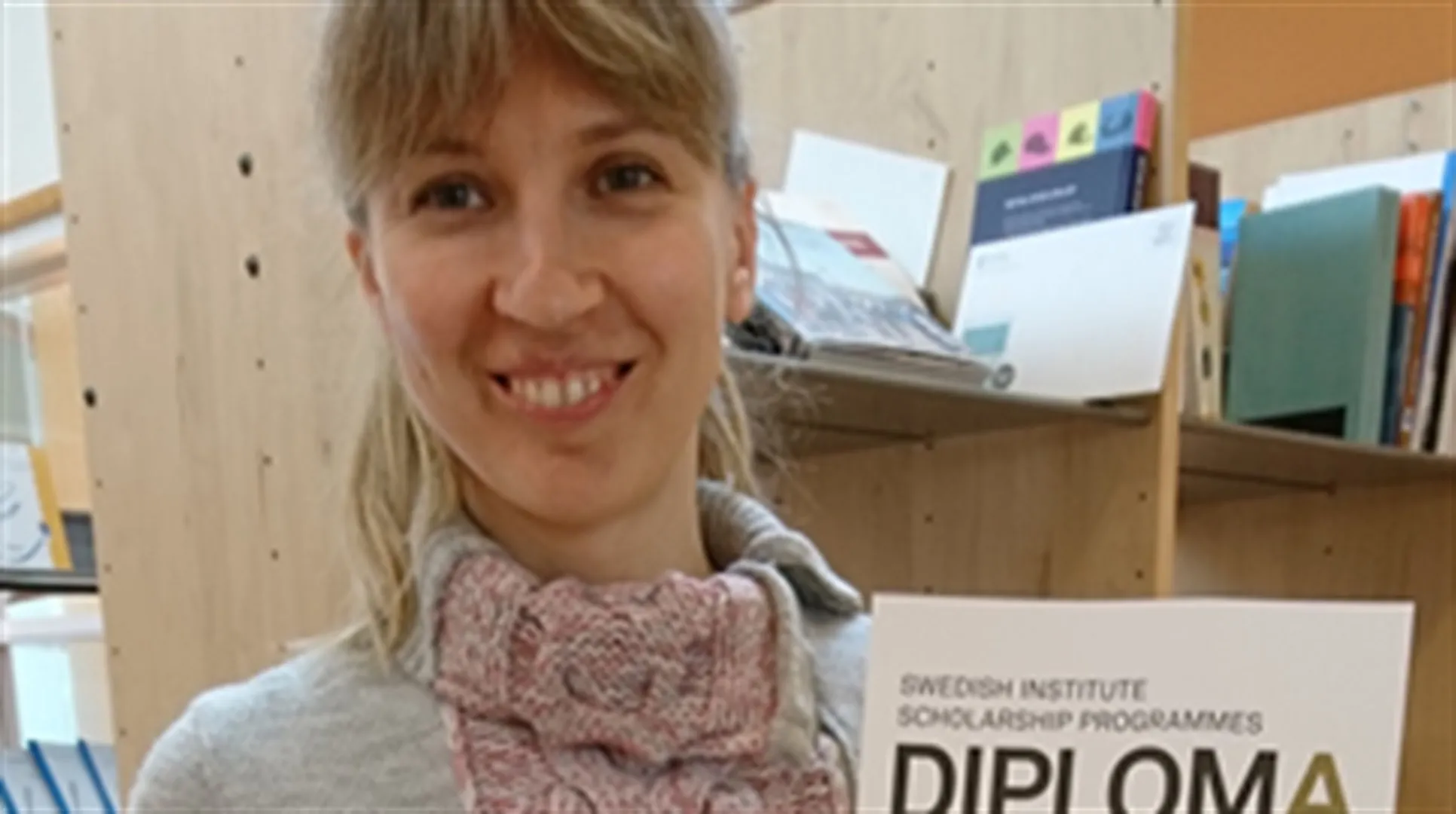I had a very fruitful visit at ETOUR
You came on a scholarship from the Swedish Institute, what was the aim of your visit?
It's good you mentioned Swedish Institute because thanks to their scholarship programs a lot of students and researchers all over the world have a possibility to experience the higher education system of Sweden. I tried to get SI scholarship two times and the second time, in 2016, I was lucky. So I've been waiting for two years to come to Sweden.
The aim of my participation was to conduct research in nature-based tourism and to develop an Ecotourism course through learning Swedish practice in the nature-based tourism sector. Both nature-based tourism and ecotourism practices are not implemented by Ukrainian tourism industry and are not represented within academic field. The situation in Sweden is quite the contrary. I knew about it because of professor's Peter Fredman articles. I read his articles and then I found that he is a researcher at ETOUR, and then I found out that ETOUR is part of Mid Sweden University. My compliments to all ETOUR researchers – the number of projects, reports and articles is very impressive. For me it was an honour to work in such highly professional environment.
Has your visit been fruitful?
Of course!
I have written an article on the evolution of views on tourism as a research object during the last 50 years based on an English literature review. Unfortunately, in Ukraine we have limited access to information recourses of such publishing companies as Elsevier, Taylor & Francis and Sage (too expensive) and I felt my responsibility to write such an article-review. During my work with the article, I was fascinated by one of the first journals in tourism research, Annals of Tourism Research, and I also wrote a short paper dedicated to the first editor of the journal Jafar Jafari and his role in generation the new tourism research trends. Now it's already published within the proceedings book of the international conference of the Faculty of Business of the Sulkhan-Saba Teaching University in Tbilisi, Georgia.
I also wrote an article about tourism studies in higher education in Sweden. In the article the Swedish higher tourism education is presented by analysing the development of tourism education and collecting descriptive information of English taught universities programs. And again, during my work, I wrote one more short paper dedicated to the tourism education future initiatives and to the importance to change education system today to be competitive tomorrow. The abstract is included to proceedings of the international conference at Odessa I.I. Mechnikov Nastional University, Ukraine.
Both articles are already accepted. The first will be published in Ukrainian Journal "Intellect - 21" and the second paper will be published in "Baltic Journal of Economic Studies".
So I would say that my visit has been fruitful.
What are your major findings?
In six months my view on tourism has been shifted from business-oriented to socio-cultural. And my understanding of tourism studies in higher education became "very Swedish" – now I see that the overall aim of the studying process is to broaden students' understanding of tourism in a changing world and to teach them to use research methods to explore tourism as a phenomenon. It's a simple and effective way to organize the studying process. I Hope, I will be able to adopt it at my home university.
How do you like this part of Sweden?
I like the winter in Jämtland! And you have fantastic facilities for winter outdoor recreation! It seems like kids from the age of three knows how to ski and skate or maybe they start to ski before they start to go. My favourite place for walks is Frösön and usually I meet people of all ages who practice running, bicycling, and Scandinavian walking. It's great that the Swedish society has a healthy way of living.
Did you find anything odd or strange during your visit that you want to share?
It was strange to see students above thirty years old within the bachelor program. And in general the average age of students in Sweden is higher than in Ukraine. It seems like the time between high school and university helps them to understand themselves better and to make a conscious choice of studying program. And I think I am not the first who tells you about the attraction of fika-time and the informal way of communication among teachers and students. It's very Swedish.
